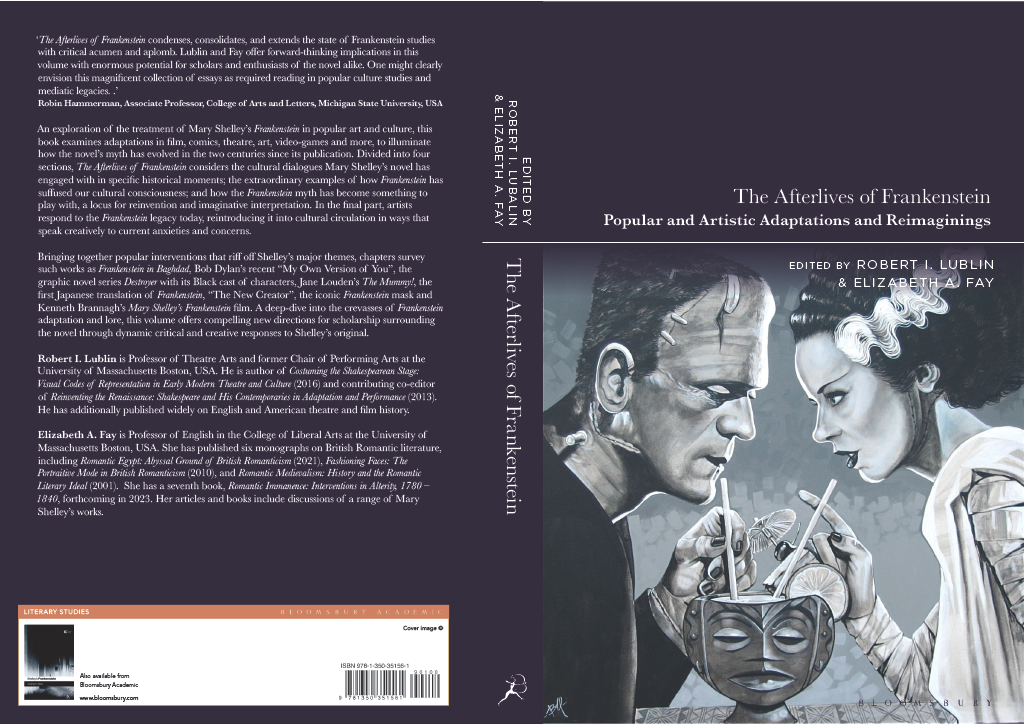College students participate in a massive amount of research. It’s a vital part of education, and often a necessity — most essays require students to cite multiple pieces of research, and publication can sometimes be one of the final steps in obtaining a degree or certification. While UMass Boston students scour databases for articles and conduct their own research, they often forget about the efforts of the university’s own faculty.
UMass Boston English professor Elizabeth Fay is one of those faculty members. Specializing in British and Romantic literature, she has published multiple books on the subject.
“I’ve always been fascinated by medieval culture and by Ancient Egyptian culture and history,” Fay wrote. “I’ve enjoyed every topic I decide to research, some of it having personal relevance to me and some of it arising from a curiosity about trends I notice when I’m teaching or studying familiar and newly rediscovered literary works.”
Fay’s publication topics include “research into the interest in medieval culture during the [Romantic] period; … the importance of women family members to important male poets and writers; the immense interest in portraiture of all kinds; … philosophical developments; … and more.” However, her main focus is on the spread and impacts of Romantic literature.
Romanticism was a philosophical movement in literature that began in Germany and then spread to the rest of Europe and America. First started as a response to the Age of Enlightenment, Romanticism focused on the importance of the individual and the appreciation of the natural world.
According to Fay, the movement also directly led to many great social achievements, including “the rise of human rights: women’s need for education and the right to work and a career; … workers’ rights; … creating laws for child labor; … the abolition of the slave trade and then the emancipation of enslaved people in British Caribbean Islands.”
Fay has published many articles and books on Romanticism throughout the span of her career, one of which is “Romantic Egypt: Abyssal Ground of British Romanticism.” Released in 2021, the book is a study of the connections between Ancient Egypt and Romantic-period Britain and Germany. There’s a clear competition throughout history between the growth of knowledge about Egyptian people and history and Romantic Europe’s desire to keep the culture shrouded in a mythical haze. These conflicting desires contributed greatly to the art of the Western world.
Fay is also an expert on “Frankenstein.” Along with UMass Boston Performing Arts professor Robert Lublin, she worked as an editor for the collection “The Afterlives of Frankenstein: Popular and Artistic Adaptations and Reimaginings.” This book serves to highlight various pieces of media that either retell the story of “Frankenstein” or are inspired by it, from video games to film. It shows just how ubiquitous the story has become, with it inspiring countless other pieces of media for hundreds of years since.
“Robert [Lublin] and I share a love for Mary Shelley’s novel, me for what it captures about the Romantic period itself, and Robert for the ‘Frankenstein myth’ that evolved in popular culture,” Fay wrote.
She added, “We first started thinking about doing something when literary and other groups were preparing to celebrate the bicentennial of the novel’s publication in 2018. We created a series of events held at UMass Boston for students. … We drew inspiration from this … to create a volume of essays from scholars on ‘Frankenstein’ and popular culture.”
Fay believes that Romanticism is a necessary field of study today, mostly because of its larger impacts on modern society.
Wrote Fay, “Romanticism can help us not repeat history by teaching us what was already accomplished in the past and why we can never take any of our rights or the rights of others for granted.”
This article appeared in print on Page 11 of Vol. LVIII Issue VII, published Nov. 18, 2024.


